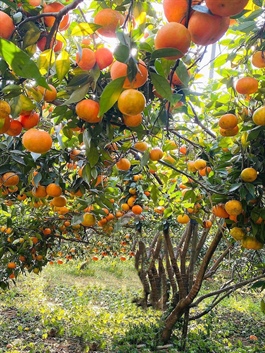Viet Nam’s wood industry continues to grow
Viet Nam’s wood industry continues to grow
Vietnamese wood and furniture products are expected to grow in 2022 due to the purchasing demand of the international market along with meeting necessary factors in Free Trade Agreements (FTAs).

Despite experiencing a difficult year last year after being heavily affected by the pandemic, the country’s exports of timber and non-timber forest products in 2021 was predicted to reach US$15.6 billion, up by 18 per cent compared to 2020. In which, the exports of wood and products reached $14.5 billion, up by 17.2 per cent compared to 2020.
Viet Nam’s timber and forest products are exported to over 140 countries and territories, of which the main markets are the US, Japan, China, EU and South Korea with a total export value estimated at $13.98 billion, accounting for 89.5 per cent of the country's export value of forest products.
The move will provide great momentum for the Vietnamese wood processing and export industry to develop with an export turnover value of 20 per cent higher than that of 2021.
The gains are attributed to the effects of FTAs such as the EU-Viet Nam Free Trade Agreement, the UK-Viet Nam Free Trade Agreement (UKVFTA), the Comprehensive and Progressive Agreement for Trans-Pacific Partnership.
They have created favourable conditions for the development of Viet Nam’s agriculture industry bringing advantages in accessing difficult markets and enhancing competition with similar farm products of other countries.
According to the Viet Nam Timber and Forest Products Association, last year the export of wooden furniture to the UK sharply increased with products for living rooms and dining rooms. They are followed by wooden furniture for the bedroom and wooden frame chairs.
As the UK-Viet Nam free trade agreement (UKVFTA) took effect in May 2021, the wood processing and exporting industry has seen high import volume in the market, reaching an export turnover of $5.24 billion, an increase of more than 15 per cent on 2020.
The UKVFTA agreement is the driving force for Vietnamese wood processing and exporting businesses to expand the market and diversify products to offer more choices for consumers.
Ta Hoang Linh, director of the Europe-America Market Department, said that the UK was the most important partner and the sixth-largest export market for Viet Nam.
However, Vietnamese products imported into this market remain modest accounting for only 1 per cent of the total volume of goods imported into the UK. The UK still has a lot of room for Vietnamese farm produce, including wooden products.
Over the year, Vietnamese wood processing and exporting businesses have been quick and flexible in response to the COVID-19 pandemic to ensure signed contracts with international customers.
According to the General Department of Viet Nam Customs, the export value of Vietnamese timber and wood products in 2021 to the Americas reached $9.3 billion, up 22 per cent compared to 2020, and the US market alone accounted for $8.7 billion, an increase of more than 22 per cent compared to 2021.
Ready to recover
Local economists forecast that the global economy will gradually recover and grow again this year. Global consumption and foreign direct investment into Viet Nam will also increase. The initiatives in technology and available raw materials of local wooden products makers will become the driving force for the country’s wood sector.
Le Minh Thien, chairman of Binh Dinh Timber and Forest Products Association, said that during an economic recovery, the economy will undergo a process of adaptions to new conditions affecting the industry.
In response to the COVID-19 pandemic, Binh Dinh Province’s wood processing and exporting businesses have received many orders but also face challenges, including shortage of raw materials and accessories, while the price of wood chips and pellets dropped sharply.
There are still many difficulties and challenges such as shortage of raw materials, increase in raw material prices, labour shortages, and factory capacity. Logistics is also a big challenge when businesses have demand to export goods but cannot find empty containers causing supply chain disruption.
The Viet Nam Timber and Forest Products Association and wood processing and export businesses have worked with authorised agencies to minimise risks in the supply of imported wood materials to avoid trade fraud.
It has suggested authorised agencies carefully review FDI investment posing a high risk for the Vietnamese wood industry.
Do Xuan Lap, the association's chairman said that despite difficulties, opportunities for Viet Nam's furniture industry were wide open.
Enterprises themselves are aware of the great opportunity, so they have been constantly looking for ways to adapt to new conditions, from retaining workers and, finding a stable source of raw materials to applying machinery and modern equipment to reduce dependence on human resources, improving product quality and packaging and delivery services.


























